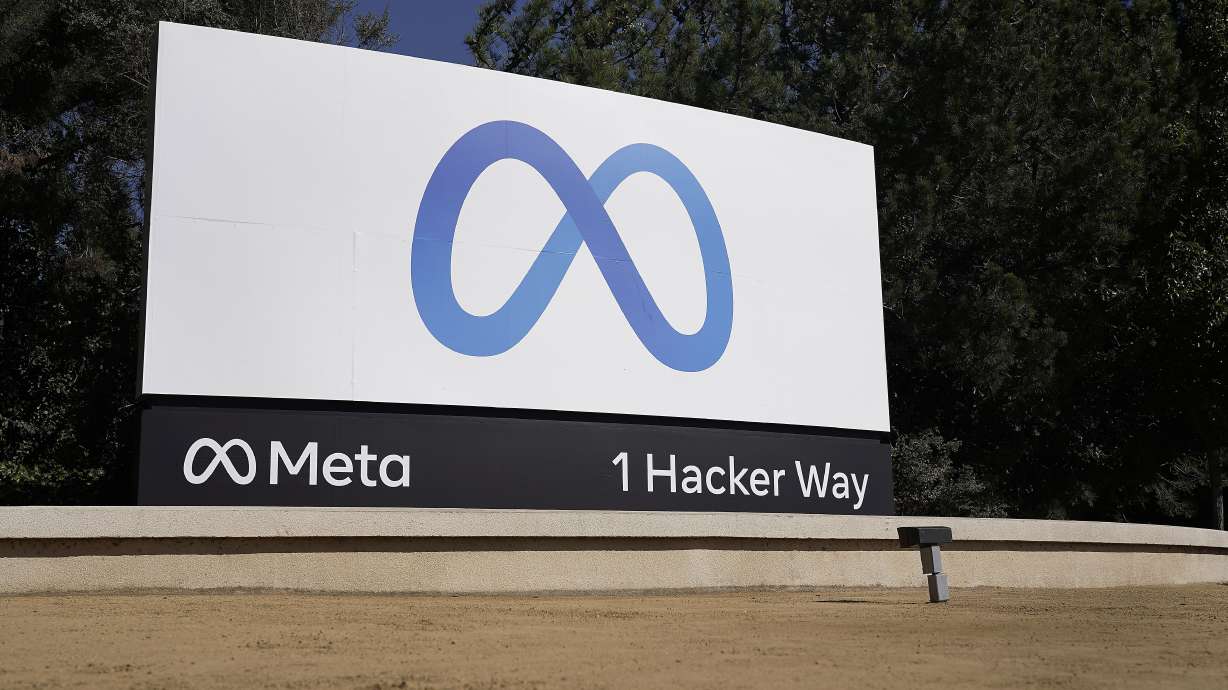Estimated read time: 4-5 minutes
This archived news story is available only for your personal, non-commercial use. Information in the story may be outdated or superseded by additional information. Reading or replaying the story in its archived form does not constitute a republication of the story.
WASHINGTON — Fake social media accounts designed to appear to be from Americans but created in China were used to spread polarizing political content in an apparent effort to divide the U.S. ahead of next year's elections, Meta said Thursday.
The network of nearly 4,800 fake accounts was attempting to build an audience when it was identified and eliminated by the tech company, which owns Facebook and Instagram. The accounts sported fake photos, names and locations.
Instead of spreading fake content as other networks have done, the accounts were used to reshare posts from X, the platform formerly known as Twitter, that were created by politicians, news outlets and others.
The newly identified network shows how America's foreign adversaries exploit U.S.-based tech platforms to sow discord and distrust, and it hints at the serious threats posed by online disinformation next year, when national elections will occur in the U.S., India, Mexico, Ukraine, Pakistan, Taiwan and other nations.
"These networks still struggle to build audiences, but they're a warning," said Ben Nimmo, who leads investigations into inauthentic behavior on Meta's platforms. "Foreign threat actors are attempting to reach people across the internet ahead of next year's elections, and we need to remain alert."
Meta Platforms, based in Menlo Park, California, did not publicly link the Chinese network to the Chinese government, but it did determine the network originated in that country. The content spread by the accounts broadly complements other Chinese government propaganda and disinformation that has sought to inflate partisan and ideological divisions within the U.S.
Earlier this year, some of the accounts abruptly replaced their American-sounding user names and profile pictures with new ones suggesting they lived in India. The accounts then began spreading pro-Chinese content about Tibet and India, reflecting how fake networks can be redirected to focus on new targets.
'Cannot be trusted'
Meta often points to its efforts to shut down fake social media networks as evidence of its commitment to protecting election integrity and democracy. But critics say the platform's focus on fake accounts distracts from its failure to address its responsibility for the misinformation already on its site that has contributed to polarization and distrust.
For instance, Meta will accept paid advertisements on its site to claim the U.S. election in 2020 was rigged or stolen, amplifying the lies of former President Donald Trump and other Republicans whose claims about election irregularities have been repeatedly debunked. Federal and state election officials and Trump's own attorney general have said there is no credible evidence that the presidential election, which Trump lost to Democrat Joe Biden, was tainted.
When asked about its ad policy, the company said it is focusing on future elections, not ones from the past, and will reject ads that cast unfounded doubt on upcoming contests.
And while Meta has announced a new artificial intelligence policy that will require political ads to bear a disclaimer if they contain AI-generated content, the company has allowed other altered videos that were created using more conventional programs to remain on its platform, including a digitally edited video of Biden that claims he is a pedophile.
"This is a company that cannot be taken seriously and that cannot be trusted," said Zamaan Qureshi, a policy adviser at the Real Facebook Oversight Board, an organization of civil rights leaders and tech experts who have been critical of Meta's approach to disinformation and hate speech. "Watch what Meta does, not what they say."
'A horrible preview'
But 2024 poses new challenges, according to experts who study the link between social media and disinformation.
"Platforms still are not taking their role in the public sphere seriously," said Jennifer Stromer-Galley, a Syracuse University professor who studies digital media.
Stromer-Galley called Meta's election plans "modest" but noted it stands in stark contrast to the "Wild West" of X. Since buying the X platform, then called Twitter, Elon Musk has eliminated teams focused on content moderation, welcomed back many users previously banned for hate speech and used the site to spread conspiracy theories.
Meta's efforts to protect the election so far are "a horrible preview of what we can expect in 2024," according to Kyle Morse, deputy executive director of the Tech Oversight Project, a nonprofit that supports new federal regulations for social media.
"Congress and the administration need to act now to ensure that Meta, TikTok, Google, X, Rumble and other social media platforms are not actively aiding and abetting foreign and domestic actors who are openly undermining our democracy," Morse said.
Many of the fake accounts identified by Meta this week also had nearly identical accounts on X, where some of them regularly retweeted Musk's posts.
Those accounts remain active on X. A message seeking comment from the platform was not returned.
"This is important ahead of 2024," Nimmo said. "As the war continues, we should especially expect to see Russian attempts to target election-related debates and candidates that focus on support for Ukraine."









